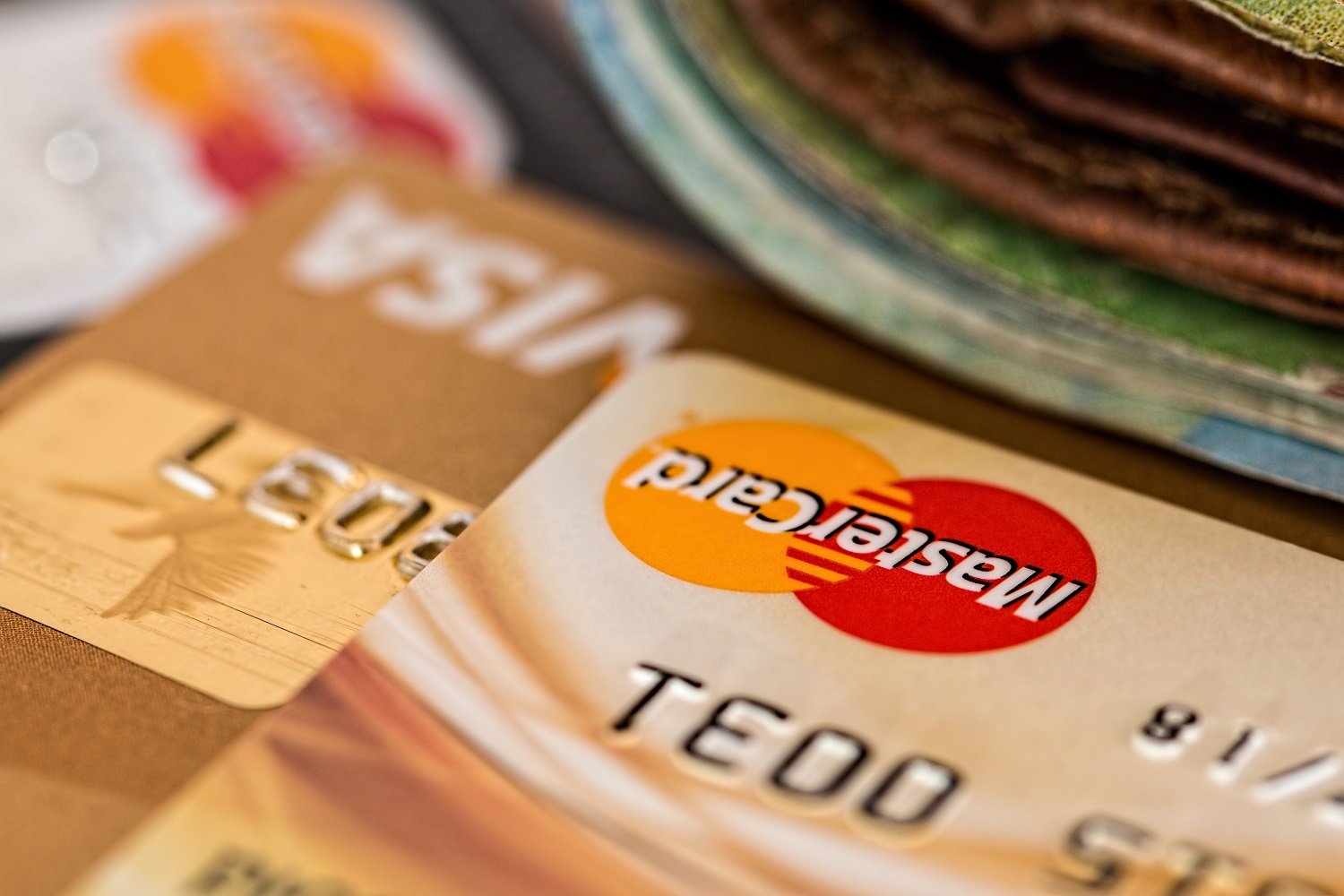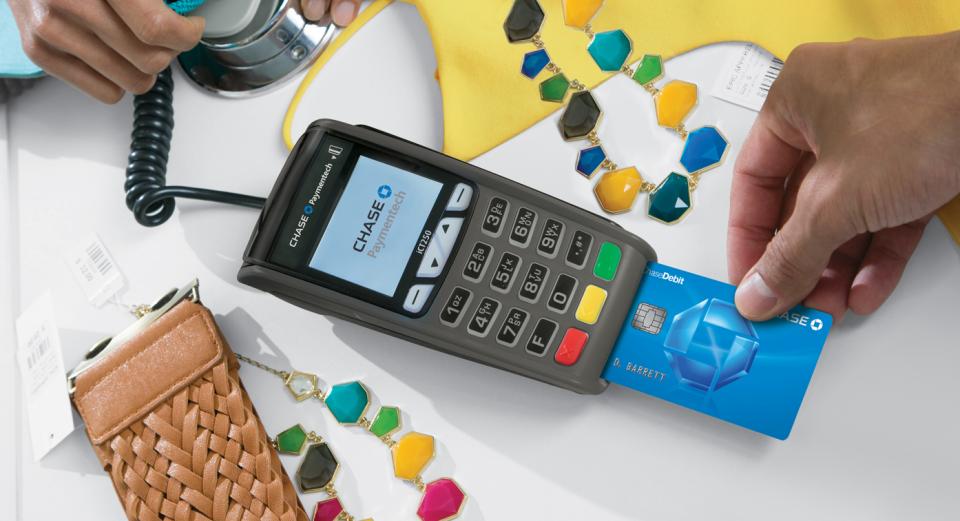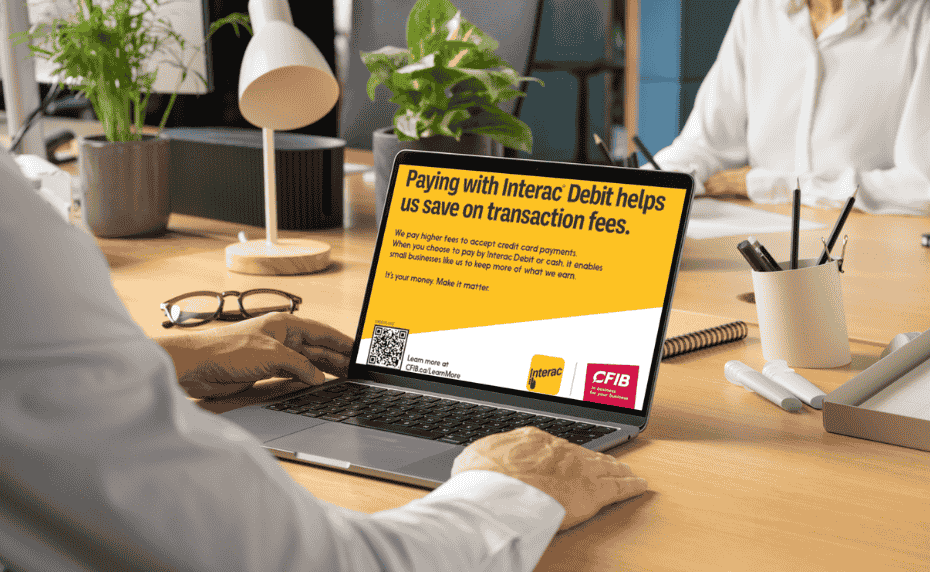CFIB Takes on the Credit Card Industry
Lower credit card fees for small business took effect on October 19, 2024.
Credit cards may be handy for consumers, but the fees to accept credit cards add up quickly for merchants like you! Since 2008, CFIB has been negotiating with government and the credit card industry for:
- Lower fees on interchange, prepaid cards, and refunds
- Clearer processing rates and fees, and more consistent language across processors
- Continuous expansion of the Code of Conduct as new issues emerge, including ensuring merchants can challenge chargebacks in a fair and simple way
- An independent system to resolve disputes between merchants and payment processors
In May 2023, the federal government announced an agreement with Visa and Mastercard for lower credit card merchant fees for small businesses – CFIB was proud to be part of that announcement. Under the new deal, small businesses with up to $300,000 in annual Visa sales and $175,000 in annual Mastercard sales will qualify for a 0.95% average interchange rate for in-store sales and a 0.1% cut in ecommerce fees. This represents interchange fee reductions of up to 37% for the majority of small businesses.
In-store Transactions on Interchange Pass-Through Rate Structures
| VISA ELECTRONIC | Classic, Gold, Platinum | Infinite | Infinite Privilege |
|---|---|---|---|
| Previous Rate | 1.25 | 1.57 | 2.08 |
| New Small Merchant Rate | 0.81 | 0.99 | 1.80 |
| Savings/$100K | $440 | $580 | $280 |
| % Savings | 35% | 37% | 13% |
Note: Visa had lower previous rates for some small firms (everyday needs program), grocery and gas retailers.
| MASTERCARD EMV | Core | World | World Elite | Muse |
|---|---|---|---|---|
| Previous Rate | 0.92 | 1.22 | 1.56 | 1.65 |
| New Small Merchant Rate | 0.72 | 0.95 | 1.22 | 1.29 |
| Savings/$100K | $200 | $270 | $340 | $360 |
| % Savings | 22% | 22% | 22% | 22% |
E-Commerce Transactions
Both Visa and Mastercard interchange rates for e-commerce transactions have been reduced by 10 bps (or 7%). This should save merchants $100 per $100,000 in sales.
How to determine if your business is benefitting from lower Visa and Mastercard fees?
Following years of CFIB advocacy, many Canadian small businesses will benefit from a significant cut in Visa and Mastercard processing fees as of October 19, 2024. CFIB has prepared this guide to help you determine if you qualify for these savings and ensure the savings have been passed on to your business.
WHO QUALIFIES?
- Visa: Up to $300,000 in total annual Visa sales.
- Mastercard: Up to $175,000 in total annual Mastercard sales.
- New businesses should all qualify, with eligibility reviewed each year going forward.
HOW MUCH SHOULD I SAVE?
- Visa: Depending on the industry and type of card, rates should drop between 25-35% (savings of $300-400 per $100,000 in transactions)
- Mastercard: Depending on the type of card, rates should drop around 20% (savings of $200 per $100,000 in transactions)
HOW DO I KNOW IF MY CARD PROCESSOR WILL PASS ON THE SAVINGS?
CFIB asked all major processors (and some of their partners) about their plans to pass on the savings. Here is what we were told or have learned from their websites:
| Promise to Pass on Savings | Will Not Pass on Savings | Unclear / No Reply |
|---|---|---|
| Chase Merchant Services | Stripe | Fiserv (First Data) |
| Global Payments Inc. | LightSpeed Inc. | Nuvei |
| Moneris Solutions | Freshbooks | Adyen Canada Ltd. |
| Shopify Inc. | PSP Services Inc. (previously, PSiGate Merchant Services) |
|
| Square Inc. Canada/Block Inc. | SONA/ Sonapay | |
| TD Bank Merchant Services | Elavon | |
| Peoples Trust/Peoples Group* | QuickBooks |
*Peoples Trust/Peoples Group does not set pricing, as this is determined by downstream ISOs. However, they have expressed full intentions to pass on the reductions.
Note: There are several other smaller processors who may partner with one of the companies above. Please ask CFIB if your processing company is not on this list.
HOW DO I CHECK IF THE SAVINGS HAVE BEEN PASSED ON?
If your business qualifies for the savings and your processor promises to pass on the savings, it will still be important to check if the savings have been fully passed on. If you are a CFIB member on our savings program with Chase, we have already confirmed that the savings are coming your way.
To confirm your savings:
- Check recent written notices from your processor for communications on any rate reductions.
- Watch your statements (starting in November 2024 for transactions after October 19) to see if rates have come down.
- After a full month on the new rates, look to see if:
- Visa transactions are down 20-25%.
- Mastercard transactions are down 20% or more.
- For those on blended rates for all cards (Visa, Mastercard, Amex), check if rates are down 6% or more.
WHAT SHOULD I DO IF I SEE NO SAVINGS?
- Ask your processor to provide you with details on their fee reductions, including a breakdown of rates before and after October 19, 2024.
- If you are unsure, reach out to CFIB at: CCrates@cfib.ca, and we will do our best to determine if you’ve received the promised savings. If we determine you have not received the savings, CFIB will go to bat for you.
- To understand your rights, read the Code of Conduct for the Payments Industry , SMEs have the right to exit a payment processing contract without penalty if the savings have not been passed on.
- Consider other providers: If your current payment processor is not offering the rate reductions or the cost savings are not being passed on, consider switching to a provider. Shopping around could lead to further savings. CFIB’s plan with Chase is one good option as the savings have been verified.
CFIB will continue to put pressure on the government to expand the agreement to additional credit card providers and to review size thresholds to benefit more small- and medium-sized businesses.
Credit Card Class Action Settlement: UPDATE
At the present moment, the review process for all three tiers of claims is ongoing. Notably, three out of the four waves of approved Undocumented claim payments have already been disbursed.
Undocumented claims:
- The first batch of payments was issued around June 16, 2023.
- The second batch was issued around September 22, 2023.
- The third batch was issued after January 2024.
- A fourth batch of approved Undocumented claims only, were issued on or around June 14, 2024. If you have been approved to receive a payment in the fourth batch of approved Undocumented claims, you would have been notified via email, therefore, please be on the lookout for an email confirmation that would be coming from Payment@CreditCardSettlements.ca - no need to reply.
- If you need to request a replacement payment for an already approved claim that has been paid by the Claims Administrator or have questions about an approved payment, please direct your inquiry to Payment@CreditCardSettlements.ca.
Please note that those who have been approved to receive a payment for their Undocumented claim will receive an email from Payment@CreditCardSettlements.ca as soon as they receive approval.
Quebec Residents:
- There is a delay in processing payments for all claims filed by Quebec residents, including newly approved claims and replacement payments. For more information on this delay please visit: https://www.creditcardsettlements.ca/.
Simplified Claims:
- No Simplified claims payments have been issued. The Claims Administrator anticipates final decision notifications and payments will be issued by the end of 2024, subject to court approval.
Documented Claims:
- No Documented claims payments have been issued. The Claims Administrator anticipates payments will be issued by the end of 2024, subject to court approval. Claimants had until 11:59 PM EST on December 17, 2023, to cure all claim submission deficiencies for Documented claims (if any). Failure to cure all deficiencies in a timely manner may result in the conversion, rejection or partial approval of your claim.
For more details, please visit https://www.creditcardsettlements.ca
Learn More About CFIB's Credit Card Work On:
Our fight over the years
Since 2008, CFIB has been negotiating with government and the credit card industry to level the playing field and lower processing fees for your business.
2023
Deputy Prime Minister Chrystia Freeland, joined by CFIB President Dan Kelly, announces an agreement between Visa, Mastercard, and the federal government for lower credit card fees. Watch the announcement here.
CFIB continues to put pressure on government to:
- Speed up the implementation timeline to be ahead of Fall 2024
- Expand the agreement to additional credit card providers
- Review size thresholds to benefit more small- and medium-sized businesses
2022
A settlement stemming from a class action lawsuit against Visa and Mastercard allows certain small- and medium sized merchants to claim up to $5,000. CFIB takes charge to get the word out about the settlement to make sure as many businesses apply as possible.
Due to the lawsuit settlement, businesses are also now allowed to add a surcharge to certain credit card transactions, a key CFIB ask since the Credit Card Code of Conduct was first introduced!
2021 - 2022
Next, the Liberal government commits to reducing credit card fees for merchants in the 2021 Federal Budget, and the 2022 Fall Economic Statement.
2020
The second reduction on interchange fees for basic transactions, in addition to a new rate freeze for an additional 5 years.
2019 - 2022
Following over a decade of CFIB advocacy, the Liberal government promises to lower credit card fees further.
The Liberal government commits to reducing credit card fees for merchants in the 2019 Liberal election platform.
2014 - 2015
CFIB negotiates with Visa, Mastercard, and the government to achieve the first reduction of 10% in interchange fees and a rate freeze for 5 years.
Photo: Finance Minister Joe Oliver recognizing CFIB leadership by inviting Dan Kelly to join him at the podium for the announcement.
2010
CFIB writes and fights for the Credit Card Code of Conduct to give merchants like yourself more power with payment processors.
The Code of Conduct:
- Stopped mass distribution of premium credit cards
- Allowed merchants to exit contracts after unplanned fee increases
- Saved low-cost debit in Canada
2008
Small business owners are facing:
- Major cost increases of 20-30% month over month
- Unfair, non-negotiable contracts with costly exit fees
- Risk of 10x cost increase in the debit market
CFIB goes into action!
Over 50,000 petitions hand delivered to the Minister of Finance
Merchant Advice for Your Small Business:
Tools & Resources
CFIB has created resources and posters to help raise awareness on the costs of accepting credit cards.
Credit Card FAQ
I have received a letter about a Class action lawsuit due May 31, 2024, is it legitimate?
A few of our members have received a notice to submit a claim to participate in the Interchange Fee Settlement in the United States. Below is the information we received from our Canadian Credit Card Class Action contacts on these notices.
- The claim period is currently ongoing in the U.S. and the deadline is May 31, 2024.
- The U.S. class administrator began sending claim forms to all known class members on December 1, 2023.
- Should members have U.S. transactions and be interested, please have them contact the U.S. interchange settlement directly.
- For all inquiries related to the US Interchange Settlement, class members can:
- Call 1-800-625-6440 or
- Email info@PaymentCardSettlement.com.
- For more information on the US Interchange settlement, members should visit the dedicated Payment Card Settlement | Official Court-Authorized Website
When will I receive my Credit Card Class Action Settlement / Claim money?
Undocumented claims:
- Electronic transfers of funds will start to be issued during the week of May 21-26, 2023
- Cheques will be issued and then mailed out approximately between May 31-June 2, 2023
Simplified & Documented claims:
The Claims Administrator is currently reviewing claims. You will need to wait until they are done their initial review to ensure that the amounts allocated to the different groups (small, medium and large merchants) are appropriate before the claims administrator can start paying out the claims.
What is a chargeback?
A chargeback is the reversal of a sale transaction that arises from a processing technicality, a customer dispute or fraudulent activity. Most chargebacks are violations of the rules and regulations established by a payment brand, such as Visa®, MasterCard® or debit network. Chargebacks are something every business wants to avoid, as they can result in lost revenue.
What are payment card networks?
American Express Canada Discover, The Exchange, Interac, Mastercard Canada, Visa Canada and UnionPay make up the seven major operators of payment card networks in Canada. To participate in these networks, merchants need to establish a contract with a payment service provider, such as an acquirer which provides them with access to the payment card network.
What is an acquirer?
An acquirer is an entity that enables merchants to accept payments by credit or debit card, by providing merchants with access to one or more payment card networks for the transmission or processing of payments.
What is surcharging?
A payment card surcharge is an additional fee that a merchant can choose to charge a consumer’s bill when they pay with a credit card at the point of sale. Find out more here.
What is the Credit Card Code of conduct for the Payment Card Industry?
Thanks in large part to our work on your behalf, Canada implemented a Code of Conduct for the payment card industry in 2010, Updated it in 2015 and most recently revised in October 2023. This updated Code includes a series of policy statements, which enhances transparency and provided merchants with some power in their relationship with the credit card industry. CFIB and its members have used the Code to resolve issues on exit penalties for fee changes in processing agreements, debit cards for e-commerce, and better disclosure in contracts and statements. We work closely with the government and agencies like the Financial Consumer Agency of Canada (FCAC) to ensure the Code achieves its main objective, which is to protect consumers and merchants.
CFIB and its members have used the Code to resolve issues on exit penalties for fee changes in processing agreements, debit cards for e-commerce, and better disclosure in contracts and statements.
We work closely with the government and agencies like the Financial Consumer Agency of Canada (FCAC) to ensure the Code of Conduct achieves its main objective, which is to protect consumers and merchants.
Do over the phone credit card transactions qualify for the fee reduction?
No, the reductions only apply to “in-store” and “e-commerce” transactions: 0.95% average interchange rate for in-store sales and a 0.1% cut in ecommerce fees. This represents interchange fee reductions of up to 37% for the majority of small businesses.
Save even more on your credit and debit processing costs with CFIB
Looking for fair contracts and even more savings? CFIB members have access to exclusive low rates with Chase, one of Canada’s leading payment processors. Learn more here Information of Blog or speak to one of our Business Advisors at 1-833-568-2342 to ask any questions about the class action.












